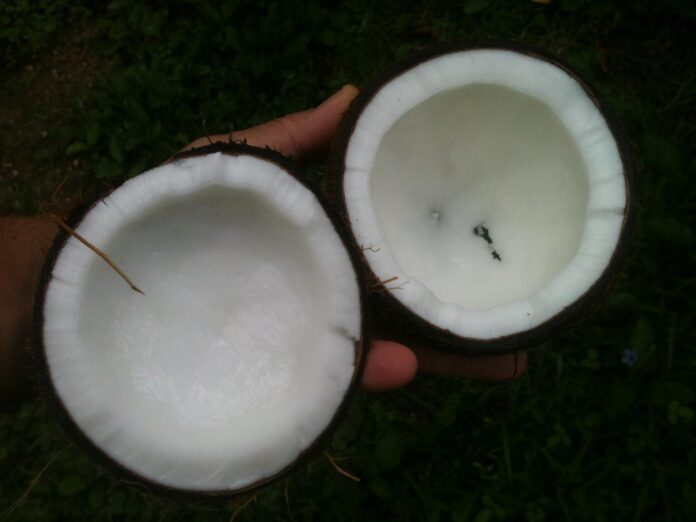Coconut oil has become a staple in many kitchens due to its versatility and perceived health benefits. However, it’s also a subject of debate among health professionals. While it excels in certain cooking applications, its high saturated fat content raises concerns about its impact on cardiovascular health. In this article, we take a deeper look into the characteristics, uses, and health implications of coconut oil and compare it with other popular cooking fats like butter and ghee.
The Composition of Coconut Oil: Pros and Cons
Coconut oil is extremely rich in saturated fat, even more so than butter. According to Prof. Grootveld, one of its major advantages is that it’s virtually resistant to oxidation, making it highly suitable for all types of frying. Its high stability at high temperatures makes it a great choice for cooking, especially in comparison to oils that oxidise more easily under heat.
However, the downside is that saturated fat has long been associated with elevated blood cholesterol levels, particularly LDL (bad) cholesterol, which is linked to an increased risk of heart disease. Health experts recommend that saturated fats should be consumed in moderation to maintain cardiovascular health.
- Calories per tablespoon: 117
- Typical smoke point: 177°C (refined), 204°C (unrefined)
- Suitable for: All types of frying
- Health impact: While it raises concerns due to its saturated fat content, coconut oil, if consumed in small amounts, is one of the best oils for high-temperature cooking. Its refined version is recommended for frying due to its higher smoke point, while raw virgin coconut oil is praised for its antioxidants and plant compounds.
Comparing Coconut Oil to Butter and Ghee
Butter and ghee are also high in saturated fat, and while both have their unique properties, they share some of the same health concerns as coconut oil.
- Butter: Loved for its rich flavor, butter is another fully saturated fat, which makes it stable when heated. However, like coconut oil, butter should be consumed in small amounts as it can raise LDL cholesterol, increasing the risk of heart disease.
- Calories per tablespoon: 124
- Typical smoke point: 150-180°C
- Suitable for: Frying or sautéing at low temperatures
- Health impact: Due to its saturated animal fat content, butter is not considered a health food and should be used sparingly.
- Ghee: This Indian version of clarified butter is made by removing water and milk solids, leaving pure butterfat. Its high saturated fat content makes it as stable as butter when cooking, but it has a slightly different nutritional profile. The removal of milk solids and casein (a protein) makes ghee suitable for people with lactose intolerance.
- Calories per tablespoon: 124
- Typical smoke point: 150-180°C
- Suitable for: Frying or sautéing at low temperatures
- Health impact: Ghee is nutritionally similar to butter but can be used by those with lactose intolerance. However, it should also be consumed in moderation due to its high saturated fat content.
Essential Rules for Cooking with Oil
When cooking with oils, it’s essential to know which ones to use for different purposes. Not all oils are created equal, especially when exposed to high heat. Here are some key guidelines to follow:
- Use extra virgin olive oil for salad dressing to retain heart-healthy plant chemicals and maximise flavour.
- Sauté vegetables in regular olive oil instead of extra virgin olive oil, as it has a higher smoke point.
- For deep frying, opt for vegetable oil, sunflower oil, or rapeseed oil—but avoid shallow frying with sunflower oil.
- When sealing meat like steak, use a small amount of butter. It may seem counterintuitive, but butter is healthier than olive oil in this specific cooking method.
- Store oils away from light, as prolonged exposure can lead to oxidation and reduce their health benefits.
- Avoid reusing and reheating oils, as toxic compounds may accumulate over time.
- Keep high-temperature frying to a minimum to reduce the formation of harmful compounds.
Coconut oil is a valuable addition to any kitchen due to its heat stability and versatility, especially for high-temperature frying. However, like other saturated fats such as butter and ghee, it should be consumed in moderation. While raw virgin coconut oil offers antioxidants, the refined version is better suited for cooking due to its higher smoke point. The key to using coconut oil effectively is balance—enjoy its benefits while being mindful of the potential health risks associated with high saturated fat intake.
Further Reading




